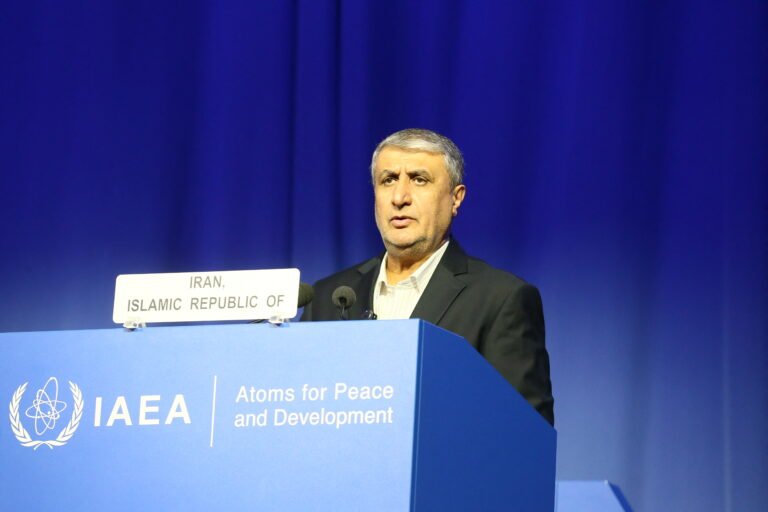Tehran, Iran – Mohammad Eslami, Iranian presidential aide and head of the Atomic Energy Organization of Iran, described his visit to Vienna as a good one.
He added that it included positive steps.
Islami added, after delivering his speech at the 69th General Conference of the International Atomic Energy Agency, which is being held in Austria from September 15 to 19, that “this presence and presentation of the facts prevented the arena from being left empty, and prevented the unilateral narrative that attempts to portray Iran as a country outside supervision and with a deviation in its nuclear program from remaining unanswered.”
He also explained that “another important point is the agreement achieved with the International Atomic Energy Agency.”
He said: “Until recently, European countries considered our country’s cooperation with the agency one of its basic conditions”. But from the moment the agreement was signed between the Iranian Foreign Minister and the Director General of the IAEA, we have witnessed new and more stringent positions on their part.
military attack
In addition, Islami stressed the need to define a new mechanism in the safeguards system granted to his country, which explains how the inspection system behaves when a country’s nuclear facilities are subjected to a military attack. He noted that his country has an Islamic Shura Council law within which work must be done.
He concluded by saying: “In any case, this visit, the statement, the speech, and the resolution presented were a positive step for our country.”
A few days ago, Iranian Foreign Minister Abbas Araqchi considered that Europe had no right to activate the trigger mechanism, considering the move “illegal and illegitimate”.
He also believed that Iran dealt with the IAEA within the new circumstances and the Parliament’s law.
He pointed out that Tehran can no longer cooperate with the agency as before and that the file now needs a new mechanism.
It is noteworthy that Araqchi had concluded last week with the Director General of the Atomic Agency, Rafael Grossi, in Cairo, a new agreement on how to deal between Iran and the agency following the 12-day war with Israel.
This came after the European Troika (France, Germany and Britain) launched a 30-day process on August 28 to reimpose sanctions on Iran under the Snapback mechanism, if the Iranian side does not resume full cooperation with the agency, including inspections of nuclear facilities, and renegotiations with the United States.

